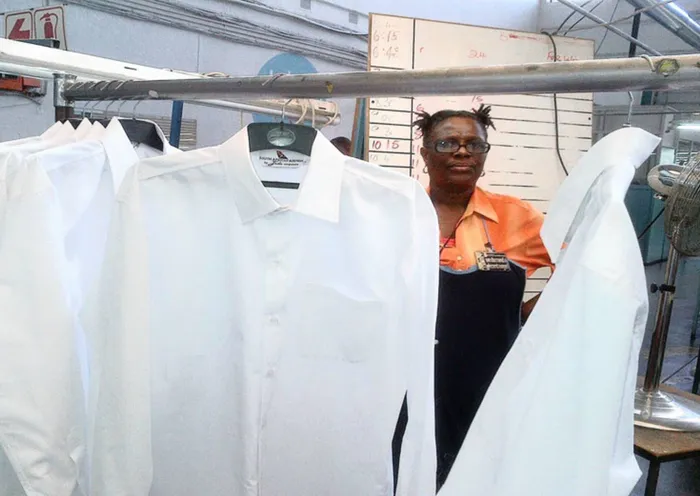NEF funds R35m Delswa buyout

The state-funded lender says there is a need to grow black participation and sustain capacity in the troubled clothing and textile industry. Photo: Supplied The state-funded lender says there is a need to grow black participation and sustain capacity in the troubled clothing and textile industry. Photo: Supplied
Johannesburg - Hot on the heels of a public furore caused by the revelation that the National Empowerment Fund (NEF) had financed a luxury retail boutique with R34 million, the government-funded lender said last week that it was increasing its exposure in the clothing and textile industry by funding the buyout of a niche corporate clothing manufacturer.
The R35m funding from the NEF will enable management of clothing company Delswa Group to buy a 42.3 percent stake in the business and staff to acquire 9.1 percent, while Nehawu Investment Holdings (NIH) will take a 25.1 percent stake.
The NEF said it did not fund the NIH equity stake, with the NIH paying R2.5m for its 25.1 percent interest. However, the fact that the funding structure required an equal split between debt and equity means that the union investment company indirectly benefited just like all other shareholders, from the NEF’s debt funding injected into Delswa. The NIH’s ultimate beneficiaries are an estimated 230 000 workers in the public education, health, civil service and social welfare sectors.
The NEF will keep a 23.5 percent stake, which the lender said was to facilitate its required rate of return from the transaction.
The NEF ruffled feathers when it funded Ndalo Luxury Ventures for R34m to set up a boutique and procure luxury clothing and accessories. Ndalo’s main shareholder is Khanyi Dhlomo, a prominent businesswoman and magazine publisher.
Trade and Industry Minister Rob Davies has since the furore requested a detailed report from the NEF regarding the funding of Ndalo.
Eyebrows were raised because the decision to fund the Delswa buyout was taken on April 22, when the NEF was about to declare a moratorium on new loans because of cash problems.
Moemise Motsepe, the spokesman for the NEF, said: “The board of trustees’ decision permitted the NEF to consider new applications until May 31, 2013. When the Delswa application was approved, the moratorium had not come into effect.”
The NEF said the investment would be used to assist the NIH, management and staff of Delswa, a clothing manufacturer in Kimberley, to acquire and expand the company.
Delswa’s public and private clients include Standard Bank South Africa, Standard Bank Swaziland, Standard Bank Namibia, SAA, Airports Company South Africa and hospital group Clinix Holdings.
Philisiwe Mthethwa, the chief executive of the NEF, said the 82-year-old Delswa had a reputation for good service and high standards, including cutting edge design, quality garment construction, appropriate fabric choices, country-wide fittings, dedicated manufacturing, managed programmes and logistics.
She said the Delswa staff trust comprised 82 percent women, and 78 percent of these were black people,
adding that when the term of the loan was over, the lender would give staff and management first preference to purchase the shares to ensure the business remained fully empowered.
She said: “With almost 500 staff members, the Delswa Group is one of the biggest employers in Kimberley, and previously had over 95 percent ownership by white shareholders. With NEF funding, the Delswa Group is now 81 percent black-owned and controlled.”
She said there was a need to grow black participation and to sustain manufacturing capacity in the troubled clothing and textiles industry. - Business Report